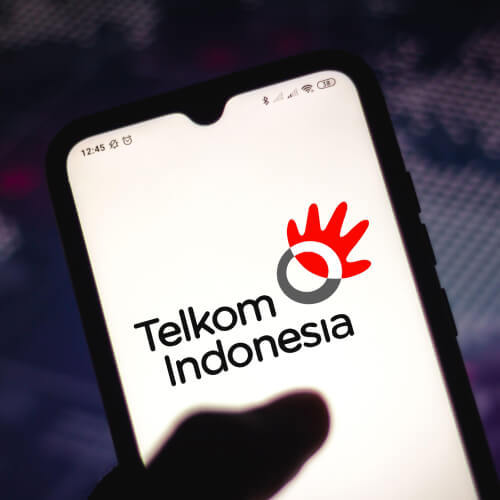The government has put digital at the heart of its economic strategy, with Communications Minister Johnny Plate calling on operators to accelerate their network rollouts to boost growth.

Indonesia's biggest operator, PT Telkom, is planning to merge its fixed and mobile businesses – the latest in a series of Asian telco restructures.
The 52% state-owned company is in talks with investment advisers about the deal, with the aim of eventually separating its consumer-facing and corporate businesses, Bloomberg reported.
PT Telkom's mobile business, Telkomsel, which has Singtel as a 35% co-owner, has 176 million customers and accounts for around three-fifths of total revenue. Telkomsel last year posted earnings of 26.2 trillion Indonesian rupiah (US$1.76 billion) on revenue of 87.5 trillion rupiah ($5.9 billion).
Telkom's fixed-line broadband business, Indihome, has 8.6 million customers, accounting for 80% of the total market.
Figure 1:  Telkom's corporate revamp is to better equip the company in the era of 5G.
Telkom's corporate revamp is to better equip the company in the era of 5G.
(Source: SOPA Images Limited/Alamy Stock Photo)
The move to merge the businesses isn't a complete surprise. Singtel made an announcement four months ago about collaborating with Telkom on fixed mobile convergence.
Telkomsel has been streamlining its business by progressively transferring its mobile towers to PT Telkom's tower unit Mitratel. It shifted 10,500 towers to Mitratel between 2020 and 2021 and announced the sale of another 6,000 three weeks ago.
Regional corporate revamps
Telkom's corporate revamp is part of a regional pattern. Telstra, SK Telecom (SKT) and NTT have all carried out restructuring in the past two years to better equip themselves in the era of 5G and the digital economy.
While Telstra and SKT have restructured in different ways, Telkom's approach is similar to NTT's reacquisition of NTT DoCoMo, aimed at shaving costs and delivering fixed-mobile synergies.
The one difference is that Telkom and Indonesia see much more upside in the digital economy. Indonesia's tech sector is still in the growth phase, as exemplified by the $1.1 billion IPO of ride-sharing and e-commerce firm GoTo in April, immediately making it one of Indonesia's biggest companies.
The government has put digital at the heart of its economic strategy, with Communications Minister Johnny Plate calling on operators to accelerate their network rollouts to boost growth.
However, the one gap is 5G, which is confined to just nine cities – partly because of the lack of spectrum, but also because Indonesian operators are still sweating their LTE networks.
But local operators are also executing some restructuring of their own. Two of Telkomsel's rivals, Indosat Ooredoo and Hutchison 3, completed a $6 billion merger in January, creating the second largest operator by revenue and customer numbers.
Want to know more? Sign up to get our dedicated newsletters direct to your inbox.
PT Telkom's stock has risen 6.6% in the past week since the merger plan was revealed.
Related posts:
— Robert Clark, contributing editor, special to Light Reading
Read more about:
AsiaAbout the Author(s)
You May Also Like











